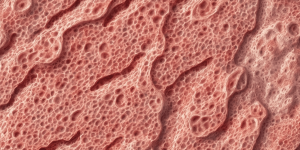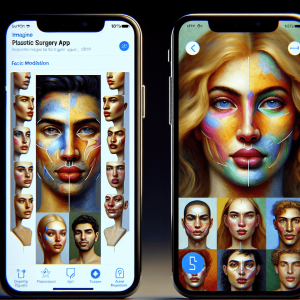Cosmetic Plastic Surgery, Aesthetic Medicine, Wellness, Dental & Cosmetics/Beauty Association – for patients and consumers
Improving beauty, aesthetics, wellness and confidence by increasing awareness and access to services, products and information
Most Recent Posts:
- Snail Mucin: Exploring the Science and Sensation of an Unlikely Beauty TrendIn the skincare world, there exists a trend that might initially raise eyebrows but has gained a dedicated following: snail mucin.… Read More »Snail Mucin: Exploring the Science and Sensation of an Unlikely Beauty Trend
- Why Should Companies Seek Cosmetics Certification?Cosmetic products must meet strict safety and quality standards – especially in the beauty industry. Obtaining cosmetics certification is a smart… Read More »Why Should Companies Seek Cosmetics Certification?
- Precision Fermentation and the Beauty Industry: Why You Need to Know ThisThe beauty industry is witnessing a profound transformation driven by advancements in science and technology. Among the emerging innovations, precision fermentation… Read More »Precision Fermentation and the Beauty Industry: Why You Need to Know This
- Vegan Collagen: The Plant-Based Beauty SecretVegan collagen, a rising star in the beauty and wellness industry, represents a revolutionary advancement in plant-based skincare and nutrition. It… Read More »Vegan Collagen: The Plant-Based Beauty Secret
- Ulta vs Sephora: As a ShopperWhen it comes to beauty shopping, two retail giants stand out: Ulta Beauty and Sephora. Both offer an extensive range of… Read More »Ulta vs Sephora: As a Shopper
- Best Skincare Products for TeensTaking care of your skin is really important, especially during the teenage years. With all the changes happening in your body,… Read More »Best Skincare Products for Teens
- 5 Things Beauty Companies Can Do Now to Improve Sales ImmediatelyAs the beauty industry continues to evolve at a rapid pace, staying ahead of the curve is essential for companies looking… Read More »5 Things Beauty Companies Can Do Now to Improve Sales Immediately
- Best Skincare Products for MenSkincare for men can seem overwhelming with so many products available. But, taking care of your skin doesn’t have to be… Read More »Best Skincare Products for Men
- HumaColl 21: A Vegan Human CollagenHumaColl™ and HumaColl21 represents a groundbreaking advancement in the field of skincare and beauty products. Developed by Gettor, it stands as… Read More »HumaColl 21: A Vegan Human Collagen
- Moisturizers: A Review of ProductsWhen it comes to skincare, finding the right moisturizer can make all the difference. There are many options available, so it… Read More »Moisturizers: A Review of Products
- Hydrolyzed Collagen Compared to Other CollagenHydrolyzed collagen is a natural ingredient that may have many potential health benefits, like improving skin elasticity and supporting joint health.… Read More »Hydrolyzed Collagen Compared to Other Collagen
- Best Cruelty-Free MascarasMust we sacrifice ethics for effective beauty products when it comes to quality mascaras? Here we review some of the top… Read More »Best Cruelty-Free Mascaras
- Best Makeup Brands for Dark SkinFinding makeup for dark skin tones can be hard. There are lots of options to choose from, which can make it… Read More »Best Makeup Brands for Dark Skin
- The Technological Evolution of Makeup Products: A Scientific Glance into Manufacturing AdvancementsThe beauty industry, perpetually dynamic, undergoes a continuous metamorphosis fueled by technological advancements. This evolution is particularly conspicuous in the manufacturing… Read More »The Technological Evolution of Makeup Products: A Scientific Glance into Manufacturing Advancements
- Alastin Skincare ReviewsAlastin Skincare is making a name in the beauty industry with its innovative products and promising results. It was developed by… Read More »Alastin Skincare Reviews
- Top 4 Drugstore Mascaras of 2024Are you looking for affordable mascara? You can find a great one at your local drugstore! There are many options to… Read More »Top 4 Drugstore Mascaras of 2024
- Dermatology Laser Equipment: A Closer Look at the TechnologyTechnology, being the mighty catalyst that it is, has given a novel dimension to the field of dermatology with the introduction… Read More »Dermatology Laser Equipment: A Closer Look at the Technology
- Best Liquid Collagen of 2024Looking for the best liquid collagen? Look no further! We have looked at the top liquid collagen products that provide visible… Read More »Best Liquid Collagen of 2024
- Top 10 Makeup Brands for TeensTeens have many makeup brands to choose from. Finding the right products can be overwhelming, but we’re here to help! It’s… Read More »Top 10 Makeup Brands for Teens
- Actinic Keratosis: An OverviewActinic keratosis is a common skin condition. It affects millions of people each year. This condition is caused by sun damage… Read More »Actinic Keratosis: An Overview
- Fractional Laser Devices: Revolutionizing Skin care TreatmentsFractional laser devices have emerged as a revolutionary instrument in the aesthetic office. Offering refined precision, these devices use laser beams… Read More »Fractional Laser Devices: Revolutionizing Skin care Treatments
- Visualizing Plastic Surgery With an AppDiscover if there is an app that allows users to visualize plastic surgery procedures before committing.
- Best Makeup Brands for Acne-prone SkinIf you have acne-prone skin, it’s can be hard to find the right makeup. Wrong makeup can make breakouts worse, causing… Read More »Best Makeup Brands for Acne-prone Skin
- Cosmetic Surgery Software OverviewCosmetic surgery software has changed how procedures are planned and done. This new technology lets surgeons see possible outcomes and make… Read More »Cosmetic Surgery Software Overview

























